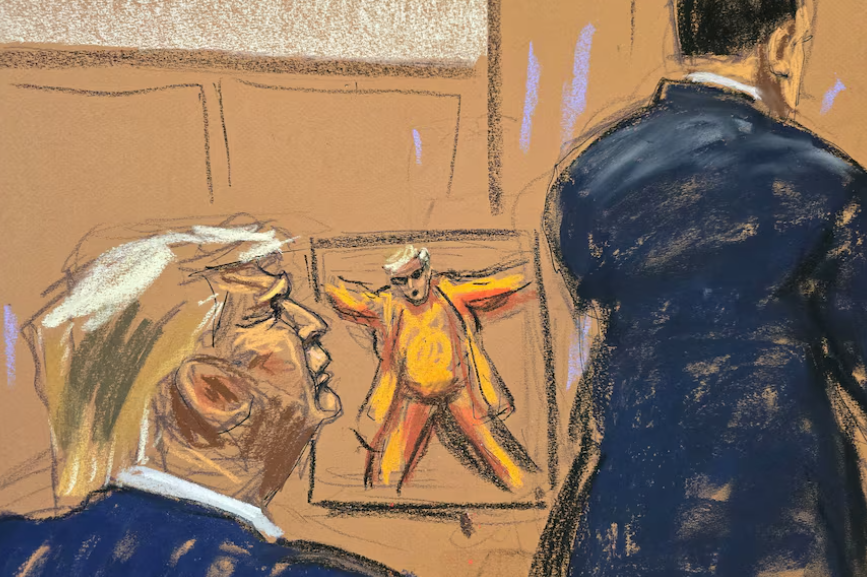On Thursday, a lawyer representing Donald Trump attempted to depict the hush money payment central to his criminal trial as extortion. The lawyer, Emil Bove, questioned Keith Davidson, a lawyer involved in the deal, about his negotiations for cash in exchange for compromising information with other celebrities.
Bove’s interrogation of Davidson hinted at a strategy by Trump’s legal team to undermine the credibility of prosecution witnesses in the unprecedented trial of a former U.S. president. Trump stands accused of attempting to conceal a $130,000 payment to porn star Stormy Daniels just before the 2016 presidential election. Trump maintains his innocence and denies Daniels’ claim that they engaged in sexual relations.
During Davidson’s testimony that he, as Daniels’ lawyer at the time, facilitated the payment with Trump’s personal lawyer Michael Cohen, Bove inquired about Davidson’s alleged attempts to extract cash from Hulk Hogan for a sex tape, as well as his efforts to trade embarrassing information for money from celebrities like Charlie Sheen and Tila Tequila.
Bove directly asked Davidson, “You were pretty well-versed in getting right up to the line without committing extortion, right?” Davidson denied ever engaging in extortion.
Trump’s legal team is expected to employ a similar approach with other anticipated witnesses, including Daniels (Stephanie Clifford) and Cohen, who served prison time for his involvement in the payment scheme.
Non-disclosure agreement
Davidson confirmed that Daniels signed a non-disclosure agreement with Trump to remain silent about a 2006 sexual encounter but asserted that he would not characterize the payment as hush money. He described it as “consideration in a civil settlement agreement.”
Davidson explained that the strong denial he helped craft for Daniels when the payment was disclosed in 2018 did not constitute a lie because it referred to a “romantic sexual” relationship rather than a one-time sexual encounter. However, Daniels later disowned the statement, claiming the signature on it was not hers.
In a separate development, Justice Juan Merchan indicated a possibility of imposing fines on Trump for allegedly violating a gag order that prohibits him from publicly commenting on jurors, witnesses, and others involved in the case if such statements are intended to interfere with the trial.
Merchan challenged a defense assertion that Trump did not breach the gag order when he commented on the political composition of the Manhattan jury. Despite Trump’s claim that the gag order prevents him from testifying, it does not.
Prosecutors sought a $4,000 fine for Trump’s four alleged violations of the gag order, including comments about the jury’s political leanings and disparaging remarks about Cohen and David Pecker, a witness in the case. Merchan declined to review a series of articles about the trial that Trump wanted to post online, advising caution.
Trump faces three other criminal prosecutions, including accusations of attempting to overturn the 2020 election results and mishandling classified documents post-presidency. He maintains his innocence in all cases.

